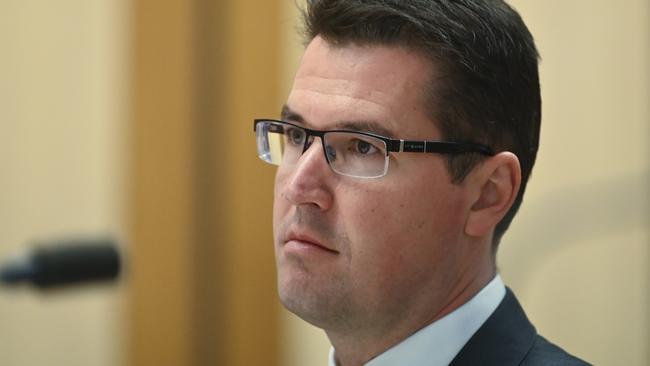Coronavirus: Universities furious over missing rescue
Universities have clashed with the federal government over an estimated $2bn in emergency funding.

Universities have clashed with the federal government over an estimated $2bn in emergency funding after Josh Frydenberg announced all registered charities would get increased access to the $130bn JobKeeper fund.
Although all universities are charities registered with the Australian Charities and Not-for-profit Commission, and fall within the published guidelines for concessional access to the JobKeeper scheme, Assistant Finance and Charities Minister Zed Seselja said on Monday that universities would not gain the benefit, which would have helped them save jobs.
The decision came as Universities Australia warned that the coronavirus crisis could result in the loss of 16 per cent of the university workforce, or 21,000 full-time jobs, over the next six months, with another major round of job losses likely to follow that.
Access to JobKeeper would give complying universities a $1500-a-fortnight grant for each employee for six months, at an estimated cost of more than $2bn.
But Senator Seselja said that universities, as well as non-government schools — many of which are registered charities — would not be able to get access to JobKeeper grants by meeting the threshold of a 15 per cent decline in revenue compared to last year, even though this concessional test would apply to other charities.
“The 15 per cent decline in the turnover threshold is aimed at charities like the Salvation Army and Catholic Social Services Australia,” he said.
Instead universities will have to meet the 30 per cent revenue decline threshold which applies to other employers — and a 50 per cent decline if annual revenue is over $1bn — in order to access JobKeeper. Currently no university meets the tougher test.
READ MORE: Crucial role of unis in coronavirus recovery
On Monday Group of Eight universities chief executive Vicki Thomson accused the government of “shifting the ground rules”.
“The Treasurer was unambiguous in his announcement that the threshold for eligibility would be lowered to 15 per cent and would apply to all registered charities — and that includes our universities which operate on a not-for-profit basis — and we expect government to follow through on that basis,” Ms Thomson said.
The Group of Eight universities, in particular, are sustaining billion-dollar revenue falls this year due to the coronavirus preventing Chinese students from coming to Australia. Universities Australia, which represents all 39 major universities, said it was disappointed universities were excluded from the JobKeeper scheme, which it says would have benefited most universities.
UA chair Deborah Terry said that access to the JobKeeper scheme “would have assisted us to preserve as many jobs as possible”.
The group said that universities were facing a conservatively estimated $4.6bn revenue hit this year due to the coronavirus.
Professor Terry said universities also wanted the federal, state and territory governments to offer universities short-term loans, at zero or low interest, to help them through this period.
“This isn’t a bailout. This is acknowledgment that some institutions may have to access bridging loans to allow them to get over this next little while,” she said.
Professor Terry also called on government to join with universities in setting up a hardship fund for international students, many of whom have lost their part-time jobs in the retail and hospitality sectors because of the virus.
The government plans to pass the JobKeeper legislation in a special parliamentary sitting on Wednesday, but will not have opposition support to ban universities and schools from being considered as charities.
Labor education spokeswoman Tanya Plibersek on Monday said universities and non-government schools should be given access to JobKeeper grants if they pass the 15 per cent revenue fall test.
“Schools and universities are registered charities, so they should be covered by the government’s special JobKeeper arrangements for not-for-profits,” she said.
“We’re talking about saving the livelihoods of hundreds of thousands of Australians — including teachers, academics, tutors, admin staff, grounds staff, cleaners — all with families, trying to make ends meet.”




To join the conversation, please log in. Don't have an account? Register
Join the conversation, you are commenting as Logout